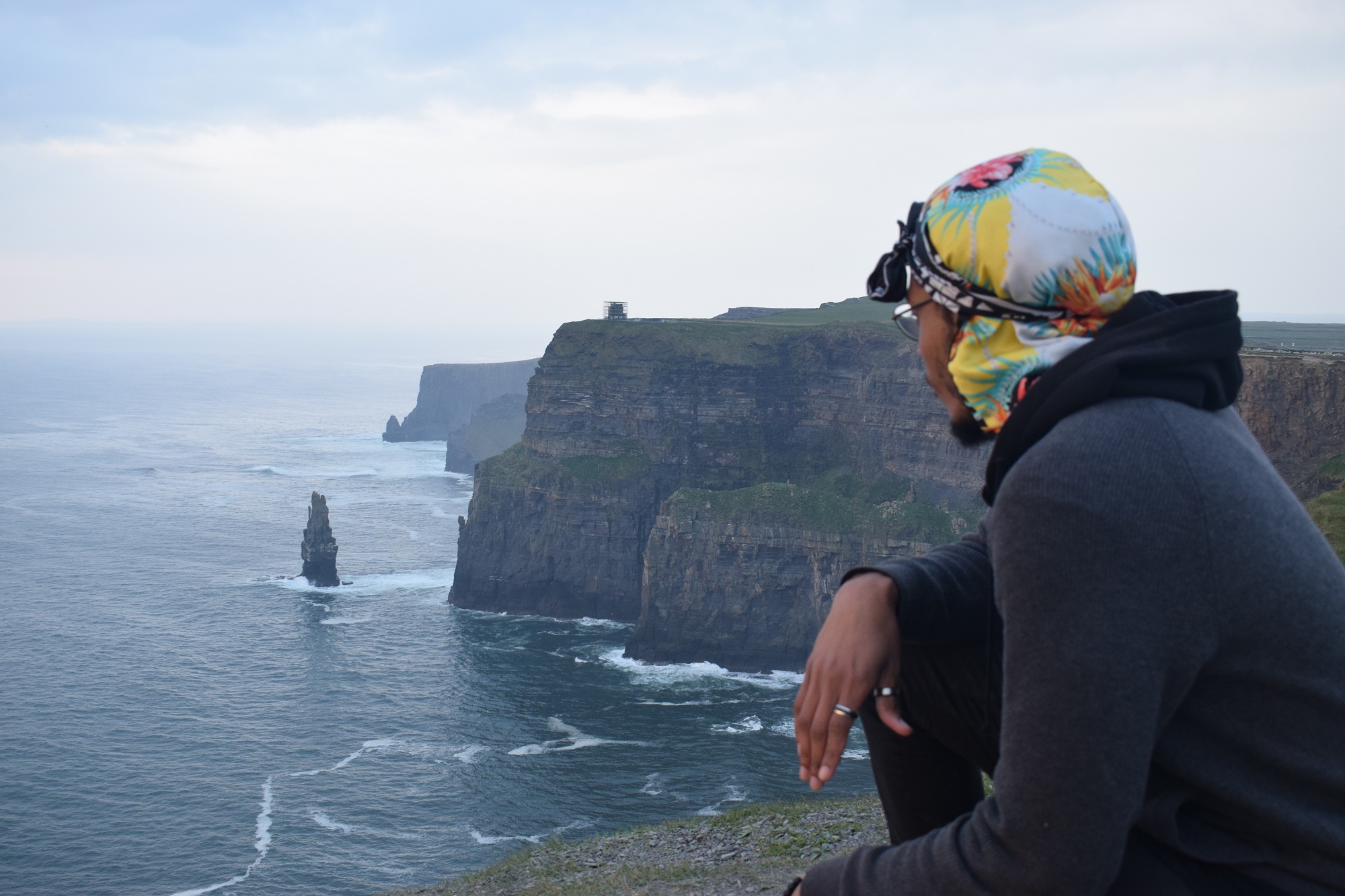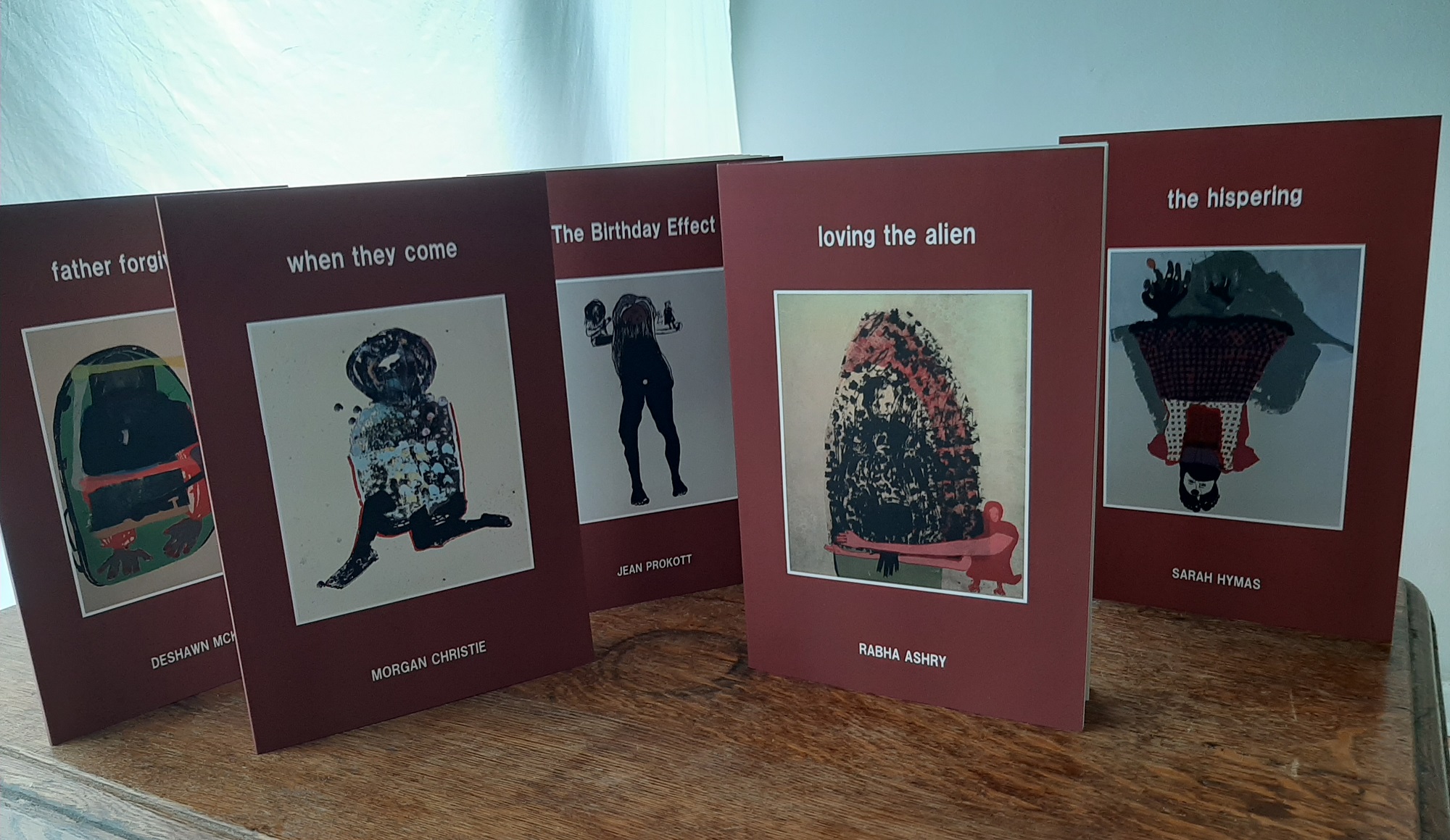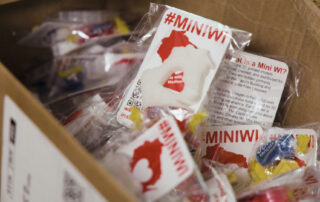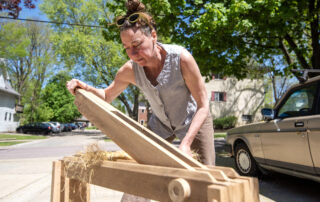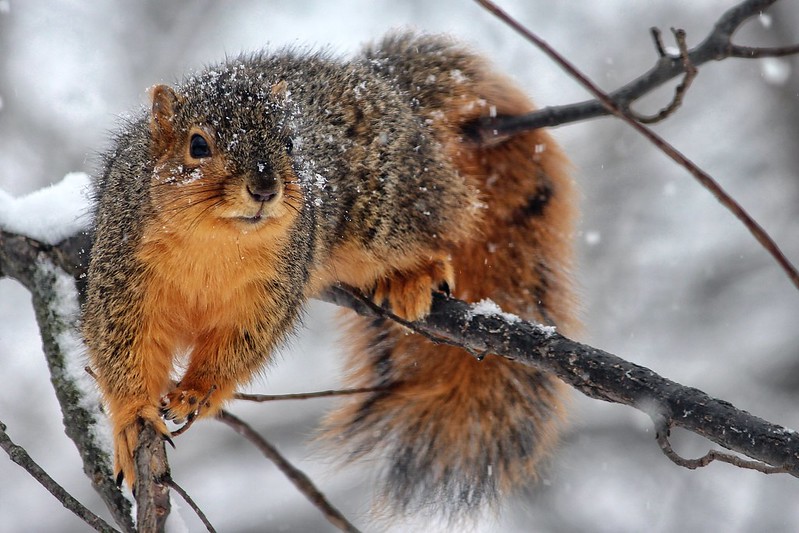Finding forgiveness is deeply personal. Sometimes, it’s easy to forgive someone who’s wronged you and move on. Other times, the road to forgiveness is long and bumpy. But what if forgiveness isn’t an option?
Writer Deshawn McKinney of Milwaukee is exploring this in his new, debut collection of poetry, “father forgive me” from Black Sunflowers Poetry Press. He shares one poem from that book, “On Forgiveness.”
==
On Forgiveness
somewhere you read forgiveness
and dream about killing a man
you hear forgiveness unburdens and check
that the knife is still by your pillow, sometimes
you feel sorry and remember your father’s words, how you suck
in your stomach in mirrorless rooms and take pride
in no one believing you were ever that big, in your resurrection
you tell yourself that you are a man
now, but every night write a hymn for the boy
who tried to scrub his stretch marks into oblivion
you think of what he would have been
if worshipped, if celebrated instead of sacrificed
wonder what to set upon an altar for sensitive Black boys,
regret the threat of the knife but polish and re-set it anyway,
having learned young that sensitive Black boys were fighters
of the world’s accord, learned young that you would have to
unlearn your tears but learned how to store them for one day
you remind yourself that it’s never too late to get an education
and hope one day is less tomorrows away when you awake;;
next to the blade will be a letter addressed to Black women,
handwritten, for fixing you plates as large as the rest
of the table, calling you baby and weighing your report cards
heavier than the digits on any bathroom (hallwaylivingroom) scale
you tell yourself you are a man now, that you say I love you
to the homies without context and hope it sounds as soft as you
believe love needs to be; on the most tender nights you scroll
through memories of smiles hugs travels and sex to pre-empt
the dreams
you wake to the stillness of 4am, having read about forgiveness,
somewhere, and forgive yourself for having trouble finding it.
==
WPR’s Maureen McCollum talked with Deshawn McKinney about the inspiration behind his work.
(This interview has been edited for brevity and clarity.)
Maureen McCollum: Deshawn, can you tell me about the inspiration behind “On Forgiveness?”
Deshawn McKinney: Yeah, I think this poem was really coming from a space of just thinking about the idea of forgiveness. So often when we experience some kind of hardship or trauma or betrayal or whatever it is, we’re often told that forgiveness is the path to move forward. It’s almost as if that’s what you have to do or what you’re supposed to do, and that’s the only way to heal from something.
For me, it’s never that simple. I think we so often force people into that. For me, that idea of having to forgive can also be harmful in some ways. I’m of the mind that that’s not necessarily the only way to move forward.
When I was writing this poem, I really wanted to grapple with the complexity. What does it look like when you hear, “I should forgive” or read about forgiveness. As the poem says, I’m actually having trouble getting to that point of forgiveness and what does that look like? That’s really where this poem comes from and what I wanted to explore.
MM: Are there certain times you feel like it’s easy to forgive, like maybe it’s a situation with a friend or a family member? Are there other issues, like maybe more complex societal issues or even something caused by a family member or friend, that you’re like, “I have no space for forgiveness.”
DM: I don’t even know if I think of it in those terms. I don’t think that there are any clear delineations of what’s easy and what’s hard. So much content comes into it in terms of the context in which, “Whatever happens happens” in your relationship to that person or that situation. Even, what did that person know prior? Like, if you told somebody, “Don’t do this thing,” and they did that thing, that’s a little different than them making a mistake without the prior knowledge. Something out of ignorance is a different thing with that knowledge and intent. So I think it’s a situational thing.
It also depends on you as a person, right? There are some things that morally I couldn’t compromise on. I like the idea that my life matters. There’s no room. That’s, to me, a very basic human thing that you can’t compromise on. So, some of those moral things you can’t move forward from.
Or for some people, you know, cheating in a relationship; it’s a done deal. For other people, though, it’s something that you can work through. That’s giving people grace, whatever that looks like for you.
So I think it’s a complicated thing. That’s part of why this poem is important. It was important to me to grapple with what does it look like in this one situation. People in other situations can find some of their own life and self within that, even if they’re not dealing with the same exact things.
MM: What you alluded to before, some people — especially if their belief system is deeply rooted in religion or whatnot — feel like the only path forward is to find forgiveness. So they may wonder if you’re unable to forgive certain scenarios, how are you able to move on? What would you say to them?
DM: I think, ironically, a part of it is maybe forgiving yourself for not being able to to give back to the person, right? Giving yourself that grace. And then it’s about learning how to carry the thing.
You know, me working on this larger text, it was in a context where I felt like the universe was giving me a lot of signs and brought me back to Milwaukee, which is home. I hadn’t been there for a while. So I’m back within the context of the things I’m writing about. A part of it was learning, “How do you carry it and then move forward through life?”
I don’t think you have to forgive in order to learn how to carry something. We have these old sayings like, “Love your enemy,” and things like that, which I don’t subscribe to. I think it’s great if other people do. But I don’t believe I need to love my enemies. I can move forward throughout the day just fine knowing that. It’s not that I hate them either — and that’s a whole other conversation, the utility of hate as an emotional step. But, I think it’s just about learning how to carry for you.
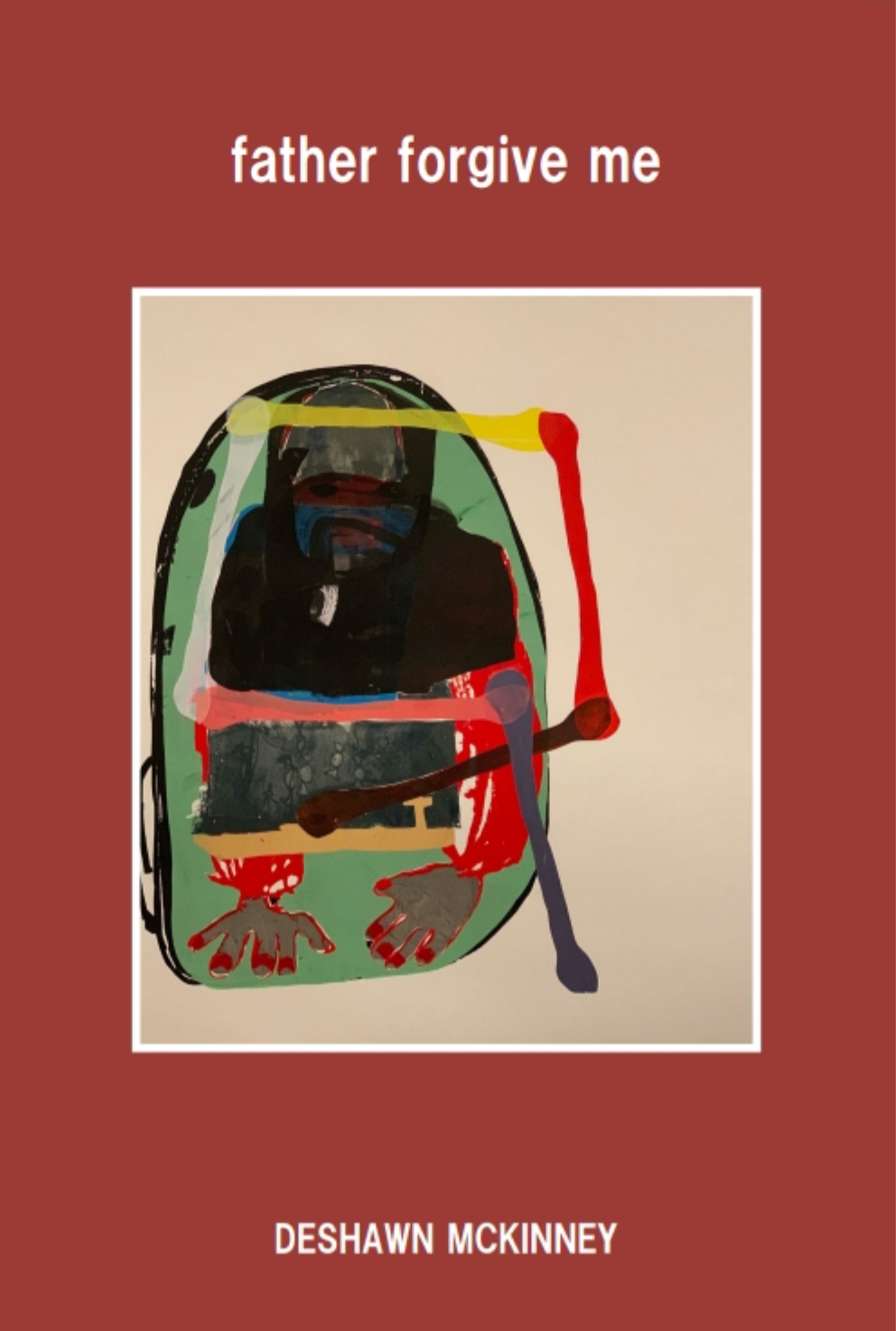
Deshawn McKinney’s chapbook “father forgive me” with cover image by artist Virginia Chihota. (Courtesy of Black Sunflowers Poetry Press)
MM: Can you tell me more about your new book and collection of poetry?
DM: Yes, the book is called “father forgive me.” It’s really a book that grapples with and nuances generational traumas. It’s really figuring out, “How does it affect you? How does it follow you through your life?” I want to present different time periods and different scenarios of how it impacts you and then grapple with that idea of forgiveness. It really pares down to: what do you do with these experiences and this trauma and how do you move forward?
These poems all have that through line of that journey you experience, this thing that is very impactful on your life, and you’re carrying this weight. How do you move through the world and where do you go next? How do you live with things that have been imposed upon you? I think that’s kind of what I hope to get across with this book.
MM: So how did you feel once you were able to get all this poetry down on paper and to hold this collection? How are you feeling now that it’s out there in the world?
DM: Excited! One of my mentors, Dasha Kelly Hamilton, when she got the book, she said she couldn’t stop touching it. The actual feel and texture of the book was something. It was the same for me, just to get my copies and to hold work of my own, it was a really beautiful thing.
I think the whole process was very cathartic — writing about these topics and the feedback that I’ve gotten from folks has been beautiful. Within the art space there is a thing that people do that when you are open and honest, people give you the same energy back. Some of the messages I’ve gotten about how people feel more seen or how people relate to this, it’s been a really beautiful exchange. That’s really what the value of art is, right? It’s tying us all together in this loop or lineage. I’m hoping that this work continues to do that for folks.
MM: Is there feedback that you’ve gotten from some of the readers that has impacted you in a really profound way or maybe had you look at your own work of art differently?
DM: Well, that’s something that always, in a word, almost confounds me a little bit. People tell me they’re grateful for my vulnerability.
The reason that always throws me off is because I never think about it in those terms. For me, it’s just my art and my writing is the most honest version of myself. There is no other way to write that is of value to me. I don’t even think about it in terms of me being vulnerable. I never feel that when I’m writing these things; it’s just the honesty.
But I think that that’s something for me to continue to dig through and figure out. Like what is it when other people are approaching the work in this way? What does that mean to be vulnerable through your art as both the writer and the recipient? And then what to do with that? And maybe it’s nothing. Maybe I’m just like, “Great, and I’m glad you all felt this way.” I don’t know if that does enhance the way I write. I don’t want to say change, because it won’t shift it in a negative way or I won’t hold back. But that’s something that I’m thinking of a lot, because that’s definitely one comment that I get often.
MM: Can you talk about what drives you or inspires you to create?
DM: The ‘when’ is wildly variable. My philosophy, as I’ve grown into it is: whenever it comes, chase it until it’s done.
So whether I’m listening to a song and this lyric…like the technical ability of writing really interests me, the intricacies of that. So if I’m listening to lyrics and the way they’re stringing together the words and all these multi-syllables and internal rhymes and schemes and things like that — or I’m reading a poem and the line breaks or whatever — and if it hits me and inspires me, I want to sit down and start writing until I have no more inspiration coming out of me. If you don’t do that, then you’ll lose whatever that was. It’s important to capture those moments whenever they come. That’s kind of really what guides me.
Other than that, I do try to write something every day, but it doesn’t necessarily have to be poetry. Maybe that’s journaling or just jotting a line or two.
The other thing is just reading. I’m so inspired. I love knowledge and I love what happens on the page and across all genres. So, just absorbing that as much as I can, because then you also see what other people are doing. It’s like, “Huh, I never thought about that. Let me see if I could hold up.” And you go to the work and just experiment and try things.
MM: Is there anything else that you want to talk about in regards to your collection of poetry?
DM: I’m really proud that this collection has been published by Black Sunflowers Poetry Press. For me, that’s special because this is a brand new upstart, crowdfunded, Black woman-led poetry press. And I think that’s a really beautiful thing. I’m really proud to be able to grow with them, as we’re both starting off in this publishing world. We can each give each other platforms and shine. So that means a lot, especially because I was definitely raised on the wings of Black women and that those have always been the most powerful forces in my life.
(This story originally aired on June 24, 2021.)
